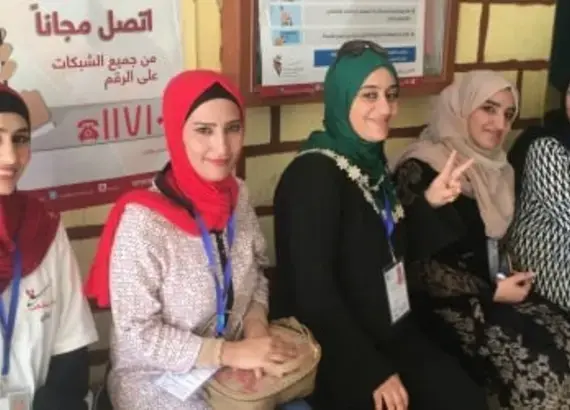
Success Story
Jordan Accomplishes Inclusive Elections with Expanded Role for Women
On September 20, 2016, the Jordanian people headed to the polls to fill 130 seats for the lower house of parliament. Amid heightened security concerns and a struggling economy, King Abdullah II dissolved parliament on May 29 and set terms for parliamentary elections in the fall.
A joint international election observation delegation supported by NDI and IRI released a preliminary statement about the election. They found that overall:
-
“Elections took place in a largely peaceful atmosphere and were efficiently organized;
-
Domestic election observers and candidate agents were present in most polling places;
-
While there were issues, most voters were able to cast votes without any significant impediment.”
“In a region beset by instability and conflict, and in a part of the world where democratic rights and norms are often diminished or ignored, the leadership of Jordan has demonstrated that it is possible to allow peaceful expression of opinion and political choice even in the presence of security pressures, a refugee crisis and unstable neighbors.”
- John Sununu, Former U.S. Senator, Delegation Co-leader
In a notable improvement in women’s representation, 20 women legislators will be seated in the lower house of the new parliament out of the 130 total seats, a new high for Jordan. Fifteen seats were reserved for women and another 5 won competitive races outside the quota system. NDI trained more than 300 potential women candidates, including 10 of the 20 women elected to office.
"Thanks to NDI and its women's political participation program for conducting this session that clarified the elections law and covered the different aspects of the electoral system. This training will prepare us to participate in the upcoming elections."
- Hayat Al Mseami, Elected MP in the Zarqa Governorate
Jordan is struggling with a range of domestic issues including stagnant economic growth, high prices, high unemployment, and pressures from absorbing hundreds of thousands of refugees.
Historically, the Jordanian parliament has been dominated by tribal candidates and business leaders tied to their local districts. Parties and political coalitions are very weak, resulting in a parliament that could rarely agree, initiate legislation or serve as more than a rubber stamp for the government.
Recently, King Abdullah has articulated the need for a more empowered parliament and a stronger party system in Jordan. Election laws were revised this year to require candidates to form a “list”, and voters were required to cast ballots for both the list and their preferred candidate(s) on that list.
It remains to be seen whether the new law in practice will achieve Abdullah’s stated goals. More likely, creating an empowered parliament and stronger parties will require that the results of the parliamentary election have a direct relationship to the composition of the government, providing an environment of greater political competition and democratic incentives to which parties and candidates could respond.
In contrast to previous elections, no major political factions boycotted the 2016 elections. The Islamic Action Front, the Muslim Brotherhood’s political arm in Jordan, won 16 seats and will have a voice in the Jordanian parliament for the first time in nearly a decade.
After the September election, governing powers will still reside with the King, but the country’s laws must be endorsed by both houses of Parliament. The open question is whether the new parliament will remain simply a rubber stamp for the government, or if it will be able to form cohesive coalitions and help address Jordan’s systemic problems. The roles that women and the Islamic Action Front play will be particularly important to watch.
“While there were isolated problems, most voters were able to exercise their rights.”
- Atifete Jahjaga, Former president of Kosovo, Delegation Co-chair
The international election mission was funded by USAID. The delegation, comprising 45 observers from 16 countries, included a former head of state, current and former legislators, party leaders, business leaders, and regional specialists.



